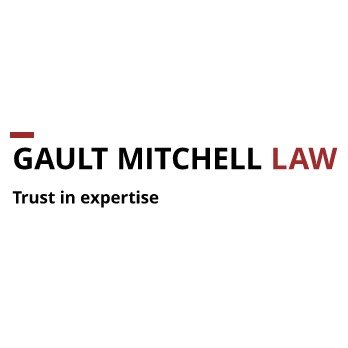Best Class Action Lawyers in Wellington
Share your needs with us, get contacted by law firms.
Free. Takes 2 min.
List of the best lawyers in Wellington, New Zealand
About Class Action Law in Wellington, New Zealand
Class action, also known as representative action, is a form of lawsuit where a group of people collectively brings a claim to court. In Wellington, like the rest of New Zealand, class action lawsuits are generally filed in cases of defective products, corporate misconduct, or any such instances where a large group of people have suffered similar harm. These actions are governed by Part 4 of the High Court Rules and the Consumer Guarantees Act 1993.
Why You May Need a Lawyer
Cases that warrant class action suits often involve complex legal and factual issues. This complexity, along with the massive financial scale that many class actions have, can make the process daunting. A lawyer who specialises in class action litigation can help represent your interests, navigate these complexities and manage the litigation process more effectively. Providing accurate advice, deciphering the legal jargon, and ensuring the case is presented effectively are some situations requiring a class action lawyer.
Local Laws Overview
New Zealand law does not have a comprehensive legislative framework specifically for class actions. Instead, class action suits primarily rely on rule 4.24 of the High Court Rules for their rules and procedures. This rule allows one or more persons with the same interest in a subject matter of proceeding to represent a group of persons with the same interest. Additionally, the Consumer Guarantees Act 1993 and the Fair Trading Act 1986 often play a role in cases involving consumer goods and services.
Frequently Asked Questions
1. Who can initiate a class action lawsuit?
Any individual or group that has suffered damage or harm due to the same cause can initiate a class action lawsuit. This typically includes consumers, shareholders, or employees.
2. What is the 'same interest' in a class action?
The 'same interest' refers to a common right, question of law, or question of fact that affects all members of the group represented in a class action lawsuit.
3. How long does a class action lawsuit take?
The length of a class action lawsuit varies and may take several months to a few years depending on the complexity of the issues at hand, number of parties involved, and how overloaded the courts are at the time.
4. What happens if the class action suit is lost?
If a class action is lost, it usually means that the plaintiffs will not receive any compensation. However, in some cases, individuals may still be able to pursue their own separate legal actions.
5. What is the benefit of a class action lawsuit?
Class action suits can provide access to justice for people who may not have the resources to individually bring a case against a large entity. It can also provide a more efficient and economical means of disposing of similar claims.
Additional Resources
The New Zealand Law Society offers resources and guidance relating to class actions. The New Zealand Ministry of Justice and the High Court also offer useful information about class actions and the procedures surrounding them. The Consumer Protection website provides information on consumer laws.
Next Steps
If you believe you require legal help with a class action, the first step is to consult a lawyer or law firm specializing in this field. They can provide you with advice tailored to your specific situation, inform you about all the legal processes, and guide you through the next steps. Ensure you gather all relevant documentation and information which supports your claim before you meet with your lawyer.
Lawzana helps you find the best lawyers and law firms in Wellington through a curated and pre-screened list of qualified legal professionals. Our platform offers rankings and detailed profiles of attorneys and law firms, allowing you to compare based on practice areas, including Class Action, experience, and client feedback.
Each profile includes a description of the firm's areas of practice, client reviews, team members and partners, year of establishment, spoken languages, office locations, contact information, social media presence, and any published articles or resources. Most firms on our platform speak English and are experienced in both local and international legal matters.
Get a quote from top-rated law firms in Wellington, New Zealand — quickly, securely, and without unnecessary hassle.
Disclaimer:
The information provided on this page is for general informational purposes only and does not constitute legal advice. While we strive to ensure the accuracy and relevance of the content, legal information may change over time, and interpretations of the law can vary. You should always consult with a qualified legal professional for advice specific to your situation.
We disclaim all liability for actions taken or not taken based on the content of this page. If you believe any information is incorrect or outdated, please contact us, and we will review and update it where appropriate.
















